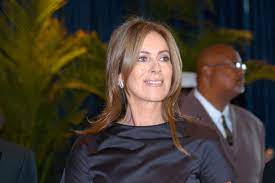Kathryn Bigelow, an American filmmaker, has undoubtedly left an indelible mark on the world of cinema. Born on November 27, 1951, in San Carlos, California, she has been a trailblazer in an industry that has historically been dominated by men. With her exceptional talent and unique vision, Bigelow has shattered stereotypes and continues to inspire aspiring filmmakers around the globe.
Bigelow’s career began in the late 1970s when she attended the San Francisco Art Institute and later enrolled in Columbia University’s film program. She quickly gained recognition for her student films, which showcased her penchant for powerful storytelling and innovative visual style. Her first feature-length film, “The Loveless” (1981), co-directed with Monty Montgomery, received critical acclaim for its gritty portrayal of biker culture.
However, it was Bigelow’s 1987 film “Near Dark” that truly put her on the map. A genre-bending vampire movie, it showcased her ability to blend action, horror, and romance seamlessly. Her subsequent films, “Blue Steel” (1990) and “Point Break” (1991), further solidified her reputation as a skilled director with a distinct flair for capturing intense action sequences.
In 2008, Bigelow directed the gripping war drama “The Hurt Locker,” a film that earned her widespread acclaim and a place in history. Not only did she become the first woman to win the Academy Award for Best Director, but “The Hurt Locker” also won Best Picture, marking a significant milestone for both Bigelow and female filmmakers as a whole.
Bigelow’s prowess in tackling tough subjects was evident in her next film, “Zero Dark Thirty” (2012), which focused on the hunt for Osama bin Laden. Once again, her direction garnered critical praise, cementing her status as one of the most formidable directors of her generation.
Throughout her career, Kathryn Bigelow has navigated male-dominated genres like action and war films with finesse. Her ability to infuse stories with depth and substance while maintaining intense entertainment value is a testament to her artistry. Moreover, she has consistently championed strong female characters and pushed the boundaries of what women in cinema can achieve, both on-screen and behind the camera.
In an industry often plagued by gender disparity, Kathryn Bigelow serves as a beacon of hope for aspiring female filmmakers. With her outstanding achievements and relentless dedication to her craft, she has paved the way for greater gender equality in cinema. As her influence continues to reverberate, it is clear that Kathryn Bigelow’s impact on the film world will endure for generations to come.
newshub




Recent Comments